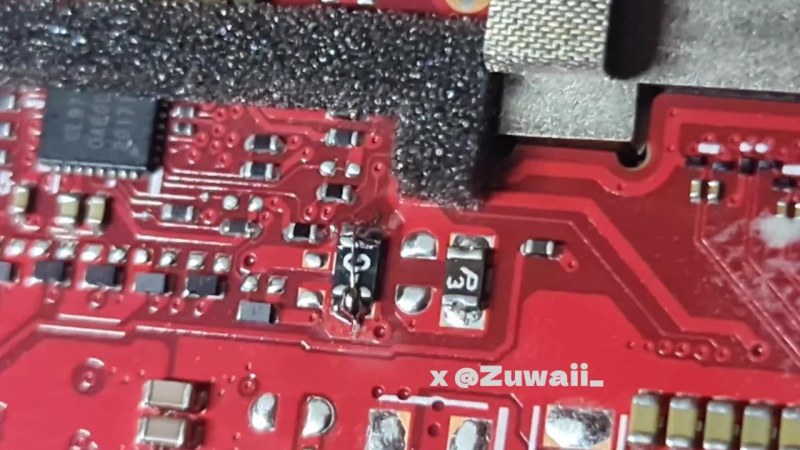The Asus ROG Ally is a handheld that, to our pleasant surprise, has attracted a decently sized modding community. Recently, we’ve stumbled upon a Reddit post investigating a somewhat common failure mode of this handheld — the microSD card slot going out of order, where an inserted card fails to be recognized, pretty irritating to encounter. Now, it turns out, this is down to a certain model of PTC fuses being failure-prone.
It makes sense to fuse the SD card slot. The cards are dense pieces of technology that are subject to some wear and tear in daily use. As such, it’s not unheard of that a microSD card can short-circuit internally — heating up to the point of melting plastic and giving people severe burns. Given that such a card is typically connected to a beefy 3.3 V rail, any mass-manufactured device designer could want to put a fuse between the 3.3 V rail and the card. However, on some ROG Ally batches, a certain make of the fuse is used, that appears to be likely to develop faults: the fuse’s resistance increasing dramatically during the card’s normal operation, with the SD card being supplied subpar power as a result.
There’s a fair bit of investigating happening in the comment section, with people posting oscilloscope captures, using breakouts to tap the SD card, and figuring out the fuse part numbers for the affected models. As for Reddit’s solution, it’s short-circuiting the fuse with a piece of thin wire — we would probably source a suitable fuse and solder it on top of the faulty one.
This isn’t the first ROG Ally modification we’ve covered so far, and given the activity we’re seeing, it’s unlikely to be our last.
















Please don’t jumper a fuse meant for protection. You can simply apply solder to both sides of the jumpered fuse. The heat or solder will reset it. Mine and others works perfectly fine now
This is most likely a *temporary* fix. The PTC element suffers permanent changes after failure like this.
Yeah, fuse replacement is best! The short in the picture is neither a good solution nor a long-term one – in fact, it was only done for testing; I used this picture because it illustrates the problem succinctly. You gotta replace the fuse, or, keep poking it with an iron every now and then ig.
What are the specs for the fuse? Where can someone source them?
In past there was neat trick in form of placing diode in place of fuse – practically no overcurrent protection at all, only against reverse polarity.
Is it possible that some designs use 0 ohm resistor as a fuse? Because i recently repaired a device where the fault was that some 0 ohm resistors have become highly resistant (sereral MOhms).
absolutely a thing, yeah! It’s not uncommon to see Eastern designs use low-value resistors (0-1ohms) as fuses like that, for instance, many TP4056 boards do. And, what’s cool, often you can put an actual PTC fuse in the resistor’s place when fixing the device!
Might this be a more common issue? I’ve had terrible luck with SD slots. I keep buying those 5 1/4″ bay multi-card devices. Each time I try a different model. They will work for a short time then the SD part will stop. Now I have all these multi-card devices that are still good for all sorts of mostly obsolete formats but have bad SD slots.
For me simply adding some more solder onto the fuse pads fixed it, the resistance went down from 56 Ohm to 0.2 Ohm (which is the datasheet resistance). Under a microscope it looks like the solder at the top (closest to card) was cracked, potentially by heat. My microSD cards are now all working (it was always detecting but unable to read the card). My speeds are also back to full (99MB/s read and 87MB/s write on a samsung evo 512GB).